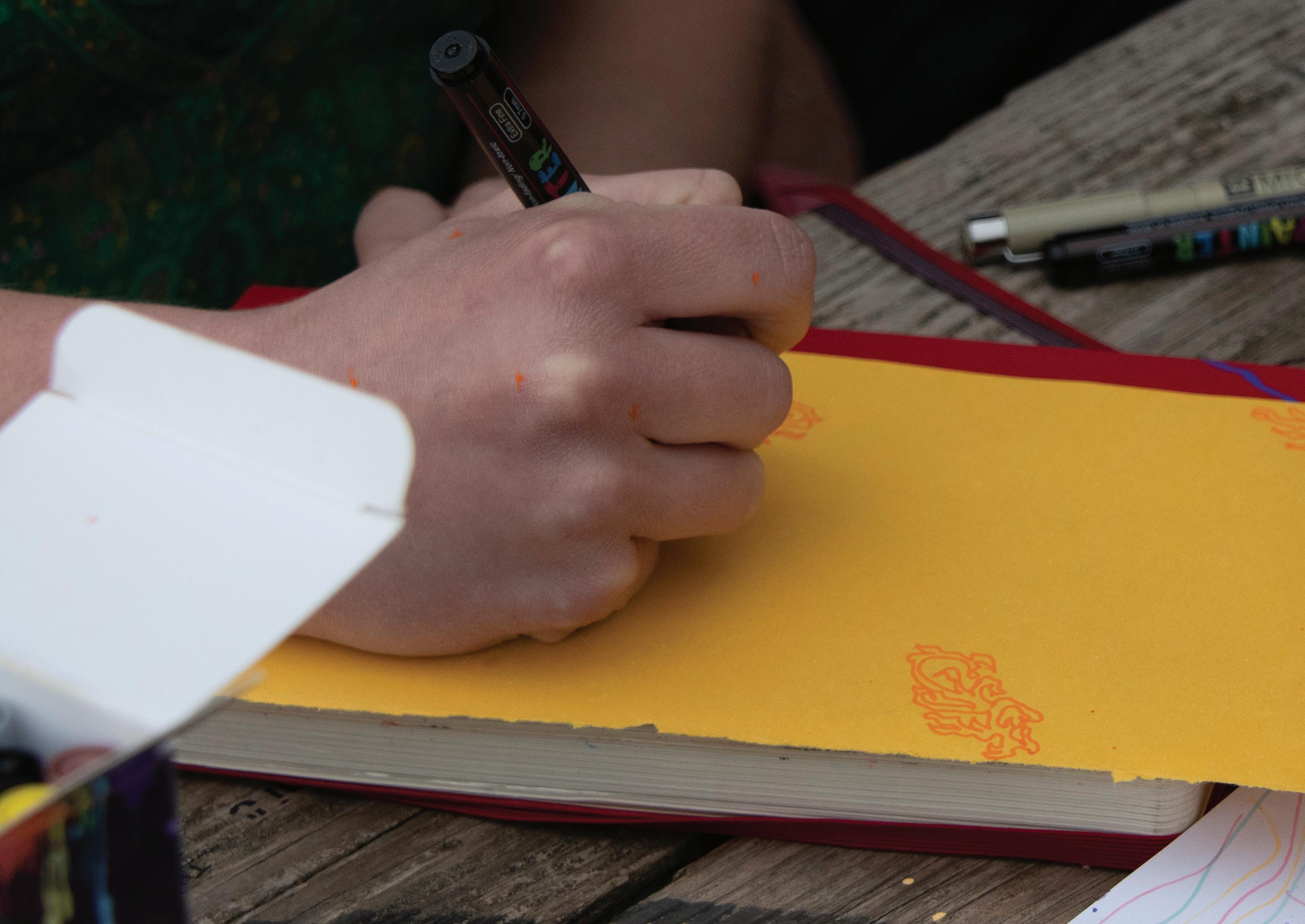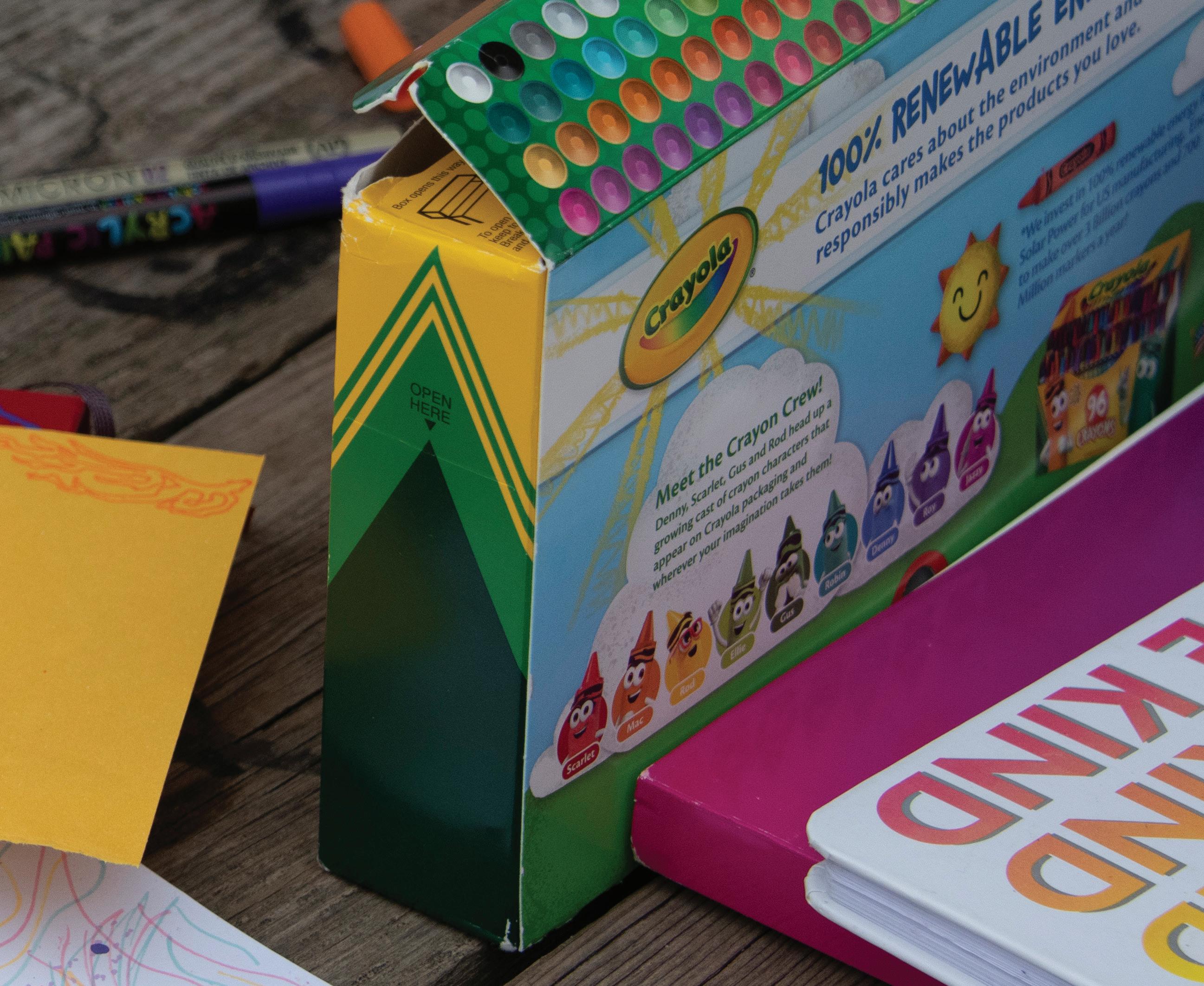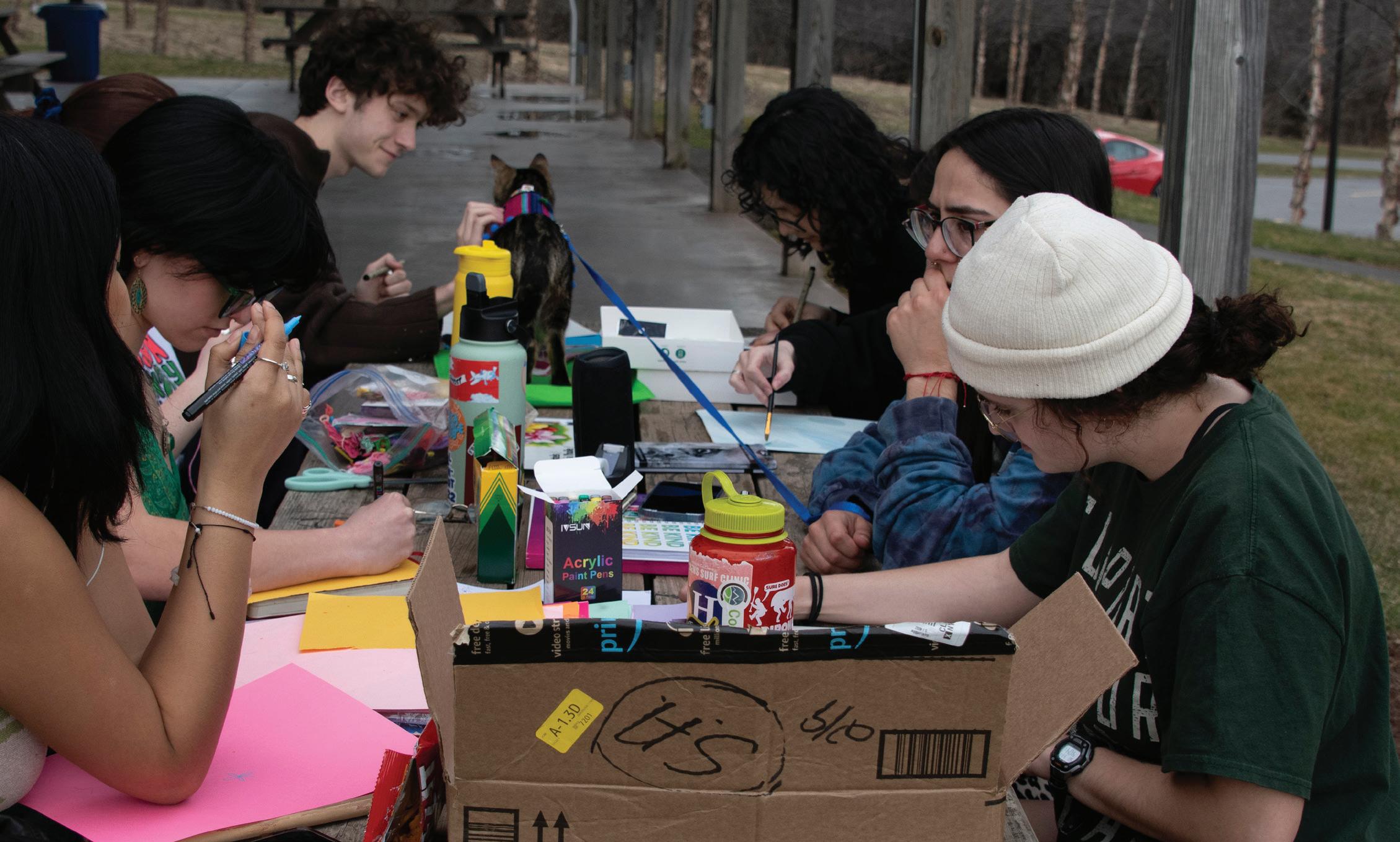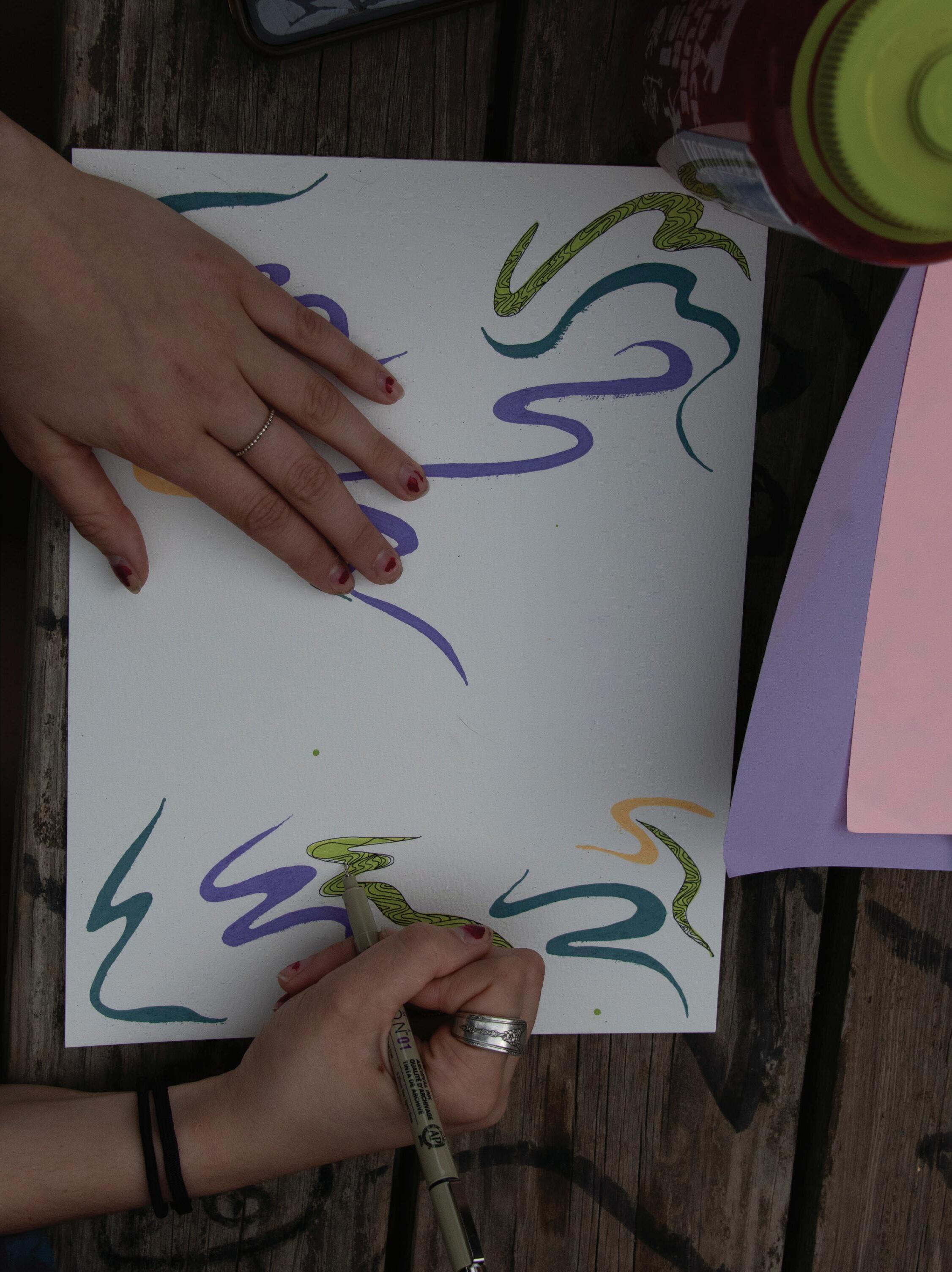
3 minute read
THE REVIVAL OF GREEN APPLE, HAMILTON’S FEMINIST CREATIVE COLLECTIVE
By Abigail Moone ‘23
At 7:30 pm on a Thursday night, fifteen students crowded into List 227—a classroom most often used for poetry readings and writing workshops. It felt perfectly fitting to host the first workshop of Green Apple, the campus’s feminist creative collective, in a space submerged in creativity daily. My co-editor KT and I filled a table with oil pastels, watercolors, scissors, glue, construction paper, and pencils. We began with a short conversation where we shared our names, our projects, and began our creative work for the semester. The meeting was a wholesome success; people crocheted, made paper sculptures and collaborative collages, and wrote short stories while simultaneously building a creative community. Our goals for the workshop were more than fulfilled. I joined Green Apple my freshman fall, and spent every Sunday evening workshopping poems in this small feminist publication. It was a formative part of my first year, but the group disappeared during the pandemic. Our head-editor graduated, and due to a variety of reasons, the incoming editor was never able to get the publication off the ground again.
Advertisement

During my time at Hamilton, I have participated in a variety of literary and creative communities. As much as I love them, none served the same purpose as Green Apple. So, in the spring of my junior year, I emailed the head of the Media Board and asked how to bring the publication back to life. Determined to experience the Green Apple community again before graduating, I spent three months going through the process of reviving it, both bureaucratically and socially. My best-friend and roommate, KT Jenkinson, joined me as co-editor-in-chief at the beginning of this last semester. Green Apple has existed since 2008 with a short hiatus between 2020 and 2022. It began as a print publication, tried blogging for a brief period in 2012, and has since returned to print. We host workshops two to four times a month, emphasizing collaboration and creative expression. All of the work produced in these workshops is compiled and published anonymously in a zine format once each semester.
Green Apple is an explicitly feminist publication, intended to uphold the legacy of Kirkland College. This commitment is in the Green Apple statement and constitution, a unique document not present in any other publication. Unfortunately, being identified as a feminist community means there will be students who do not contribute or engage in the publication, but that there will also be others who join explicitly for that reason.
Feminism and feminist spaces do not exclude any gender, identity, ect. I add this because I have received questions of whether or not men can contribute or be members, and the answer is unequivocally yes. In truth, we need more cis-men supporting and identifying with feminism and feminist spaces. While this is a feminist space, that does not mean the work produced here is necessarily about feminism or overtly political. The foundation of feminist theory is that the personal is political, so all art, action, and relationships that subvert or respond to oppressive systems can be feminist, regardless of topic or medium. If we are practicing critical care, creativity, and joy, we can build a feminist space to support and sustain our community’s artistic endeavors. We can all be feminist, and we can all make art.
While this distinction is important, the generative community component of Green Apple is another driving force in our mission. As opposed to a publishing body, looking for refined, polished, ready-to-publish work, we create that work together, regardless of experience level. Submission based publi- cations at Hamilton do not host spaces to create, workshop, or develop publishable content. Sharing creative space with a body of poets was foundational to my college transition, and I was disappointed and frustrated that the organization was not revived earlier. I restarted Green Apple because I feel connected to Kirkland College’s critical legacy and wanted an arts publication that was not structured as submission-rejection-acceptance, but rather a holistic and generative environment where exploration and experimentation are encouraged and nurtured. This approach is deeply informed by my work as a Women’s and Gender Studies major, and I have been learning how to balance facilitating a community I love deeply and am ideologically invested in with the logistical upkeep and bureaucracy. It is hard to remember to update the Presence roster when what I really want is to listen to luminous, imaginative students share their work. And yet, I continue because I love the people and the work, and I hope that others love it enough to continue nurturing Green Apple after KT and I graduate.












